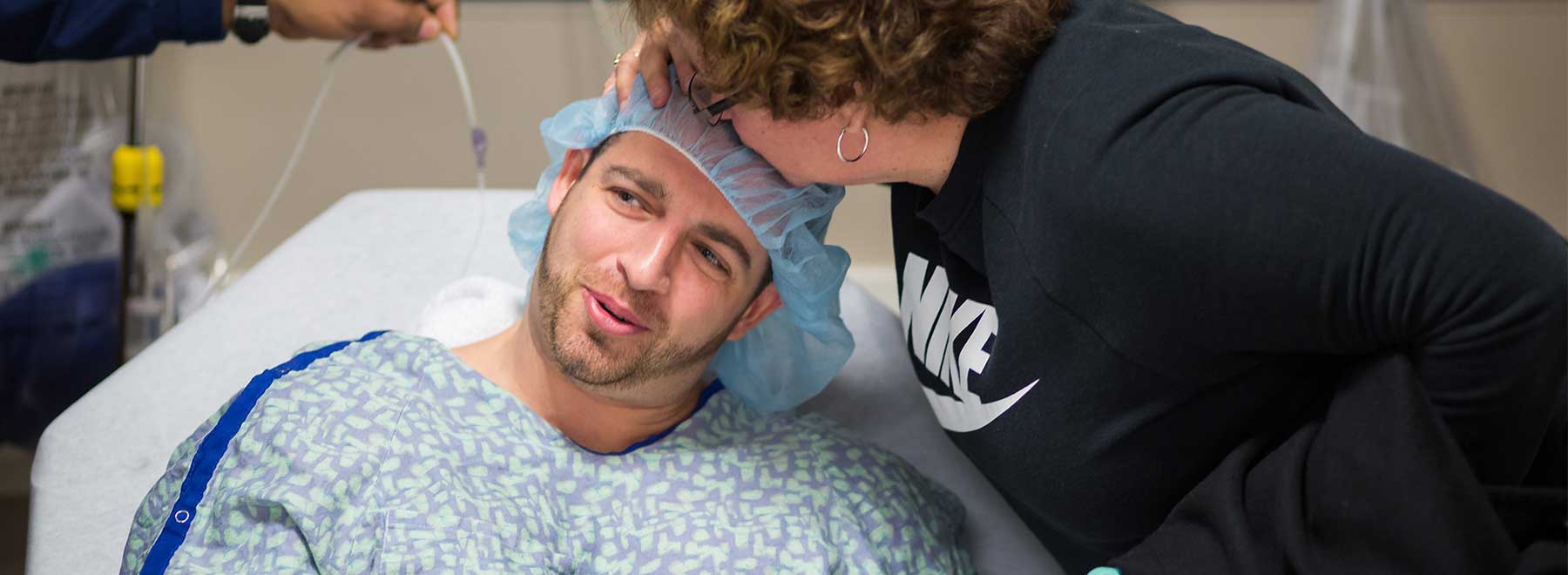Newsman anchored in attitude, not cancer
Meet Mike Sands, and you might say that cancer couldn’t have happened to a nicer guy.
His coworkers at Jackson-based Fox 40 News – he’s the evening anchor with Melissa Faith Payne – love him. He returns the affection, in particular to his girlfriend, Mary Grace Eppes, digital content manager for WLBT and Fox 40 News.
His work family is a blessing. His parents, Nanci and David Sands, live in Pennsylvania, where he grew up. Despite the distance, they’ve been very hands on during Sands’ first two surgeries to knock back myxoid liposarcoma, a fairly rare soft-tissue tumor that usually hits adults between 40-60, and not young men like Sands, who was diagnosed in February 2012 at age 27.
It started in his ankle. Came back in his calf. Spread to his lungs. Totally is not bringing Sands or his attitude down.
Just the opposite.
“I wake up, go to the gym, and go to work,” said Sands, a 2007 broadcast journalism graduate of Temple University who shortly after receiving his degree began working at Greenville’s WABG as sports director and news anchor.
“I do what everyone else does. Cancer is not who I am. I pride myself on being a tough guy.”
He’s been fortunate to feel pretty good since discovering a small lump low on his left ankle. An X-ray came back negative for anything going on. “It wasn’t painful or anything,” Sands said.
He remained vigilant, and when a biopsy finally was done, he got the diagnosis. The tumor was removed in March 2012 at the University of Arkansas Medical Sciences campus in Little Rock, followed by radiation in Greenville “from Memorial Day to the Fourth of July, and then chemo in the fall,” Sands said.
“I was supposed to be through. I made it past two years,” he said. Sands made the move to Jackson in March 2014, landing a job as a sports anchor and reporter at WLBT and Fox 40, and joining Payne as co-anchor of Fox 40’s 9 p.m. news hour in January 2016.
Late that year, he felt a hard lump in the calf of the same leg. “I knew what it was,” he said. “I got it checked out.”
That began his relationship with his University of Mississippi Medical Center cancer team at UMMC’s Cancer Institute. He saw Dr. Jennifer Barr, an orthopedic oncologist and assistant professor of orthopedic surgery, in December 2016.
The news was crappy.
Sands’ cancer had metastasized, meaning it was forming new tumors by spreading to other parts of his body via his bloodstream or lymph system. Not only did Barr confirm the cancer in his calf, but his scans showed three lesions in his lungs.
“That’s where I’m screwed,” Sands said. “Once it gets into the bloodstream and moves, there’s no cure for that. There’s no reversing it. When we take out the lung spots and maybe have a little chemo, we’re done for this round, but I’ll have three-month scans for the rest of my life.”
His doctors were being honest with him about the seriousness of his disease.
“Dr. Barr said that first day that I had a 40 percent chance of living five years,” Sands said.
Sands resumed chemotherapy the last week of December 2016, followed by a lot – a lot – of other treatment. “They kept doing different things through April or May. They did radiation for five weeks, sometime into the summer, and I took oral chemotherapy drugs,” he said.
“He was going to the gym in the middle of his chemo treatments, and counting down the days for when he’d be able to get back there after surgery,” Payne said of her workmate. That’s 30 minutes of cardio, then weights, five days a week.
“Never has he had the ‘Woe is me’ attitude. Instead, it’s ‘This is happening, this is what we’re going to do, and let’s do it.”’
In August 2017, Sands allowed his parents to take care of him by having the mass in his calf removed at Penn Medicine, the University of Pennsylvania’s academic medical center in Philadelphia. “It was a combination of peace of mind for them, and better healing options for myself,” Sands said.
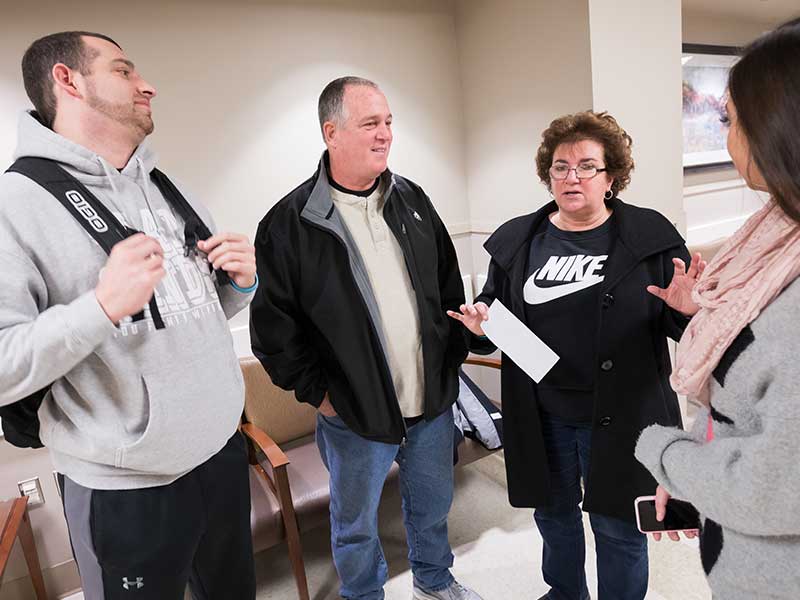
If Sands hadn’t gone to Philadelphia for his surgery, Payne said, she and her husband were prepared to care for him at her own home.
“When he first found out (about the calf tumor) and he told me, my reaction was: What do we need to do? How do we figure out the treatments?” said Payne, a veteran of 20-plus years in the broadcast industry.
“I have four boys. The mothering comes easy. I’m researching what foods he should have, and trying to get him to eat blueberries to boost his immune system. Everybody at the station stepped up. Everything he needed, he had it, and we tried to stay on task with what was happening. After an appointment, I ask him,” What did they say?”’
Sands’ work family is invested in his cancer journey. “On the days I’d take chemo, I’d do it in the morning, then go to the gym, take a nap and be at work by 8, and then go home right after the show,” he said.
“Melissa has been great. She organized a meal train for me, and most of all, didn’t treat me any differently. My girlfriend has been great, too.”
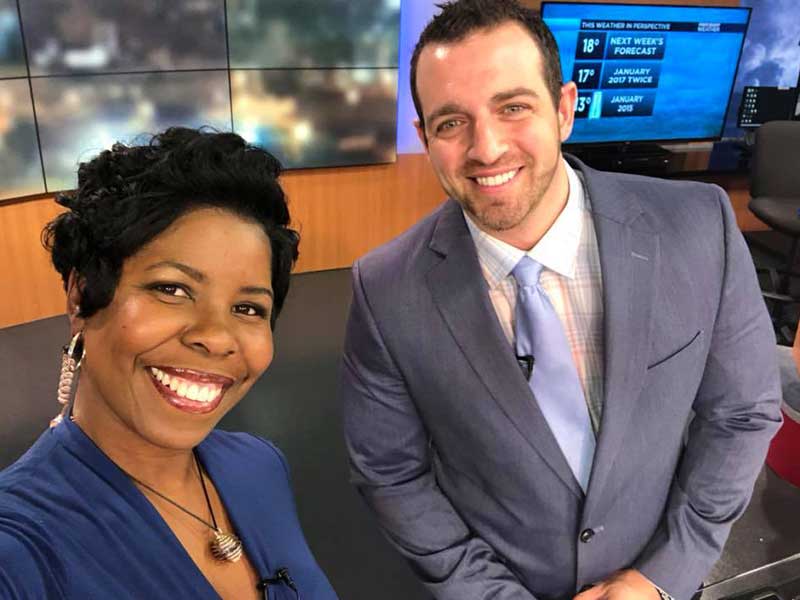
Sands lost a few pounds and all of his hair during treatment in 2012 and again in early 2017. “I’m glad I didn’t have scars from childhood,” he joked of his then-bald head. “And when the hair grows back, I have to shampoo and shave every day. It makes my routine 10 minutes longer.
“Knock on wood, I seem to take chemo really well,” Sands said. “Obviously, sometimes I feel a little different, but i never had those puking, awful experiences. Just looking around the waiting room at the Cancer Institute and seeing what other people are going through … I’ve never come close to that.”
His latest surgery was on Jan. 12. The spot in his right lung was removed by Dr. Pierre de Delva, associate professor of cardiothoracic surgery. In early February, he’ll go back to Philadelphia for removal of the other two spots.
“The surgery is on a Friday, and if I’m not back at work by Tuesday, I’ll be angry at myself. It’s three tiny incisions,” Sands said before the Jan. 12 procedure. “Personally, I’m pushing for Monday, but I don’t know if the people around me will let me.” (He was back on the set by Tuesday.)
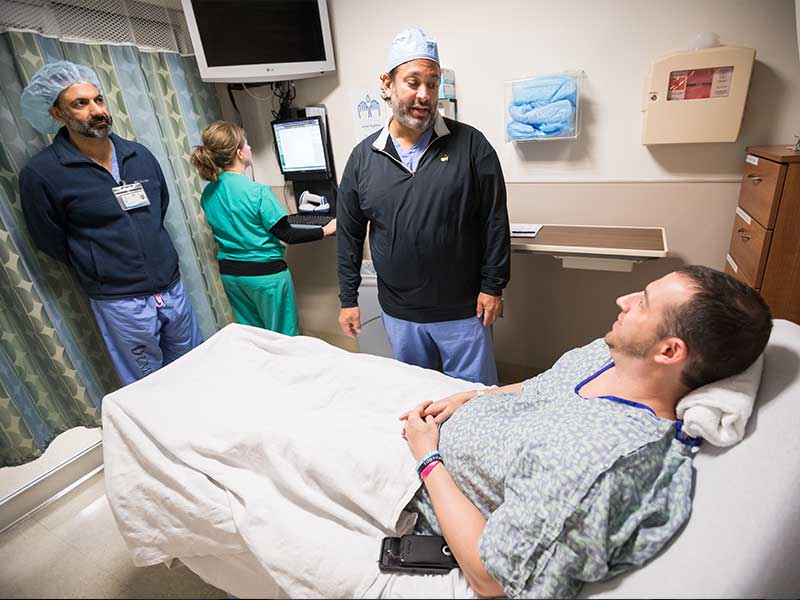
His UMMC doctors are treating new growths aggressively. In short, they’re throwing as much at him as a 33-year-old who’s otherwise in good health can take, the fury they hope will eradicate his cancer, not just stabilize it.
“I started him on chemo with an eye toward two things: shrink the mass in his calf, and have an effect on the lung nodules,” said another of his UMMC oncologists, Dr. Darryl Hamilton. “We wanted to kill two birds with one stone, but that didn’t turn out to be the case.
“Based on his age and strength, he can certainly tolerate a lot more, which is good,” said Hamilton, associate professor in the Division of Hematology-Oncology. “But it’s bad that in this type cancer, the tumor requires a hell of a lot to be thrown at him. There are limits, and part of my job is to find those limits.”
The good news, Hamilton said, is that Sands hasn’t developed any new lesions over the past year or so. “These (lung) nodules have to be addressed at some point. While they are amenable to less invasive surgery, now’s the time to get them out, and then chemo down the road, probably.”
Of his UMMC medical team, Hamilton “is the one I’ve dealt with the most, because the chemo has happened so frequently,” Sands said. “I love Dr. Hamilton. We text. Sometimes, it’s not even about my health. I love the staff at Dr. de Delva’s office and Dr. Hamilton’s office, and they love me, too. They think I’m a celebrity walking in.”
Sands’ mom and dad came to Jackson for his Jan. 12 surgery. “They let me take the lead for the most part,” Sands said of managing his disease. “It’s tough on them being far away. They trust me to know what’s best for myself, at least to a certain extent.”
Payne said Sands hasn’t shared with her some of the negative or scary details of his disease. “But, I’m a smart girl. I can research it,” she said. “I knew what was hard for him to say. We’d treat him normally.”
She’s had to fight back tears on occasion. And sometimes, a newsroom’s wicked sense of humor is good medicine in itself. “People just have to know our humor,” Payne said. “We all go out to dinner together about once a month, and someone has to choose where to go. If Mike doesn’t like the restaurant, he’ll say, ‘Hey, guys, I have cancer ...’
“I don’t think he knows how to wallow in his disease. He’s the strong one who got dealt a crappy hand, and he’s dealing with it better than most.”
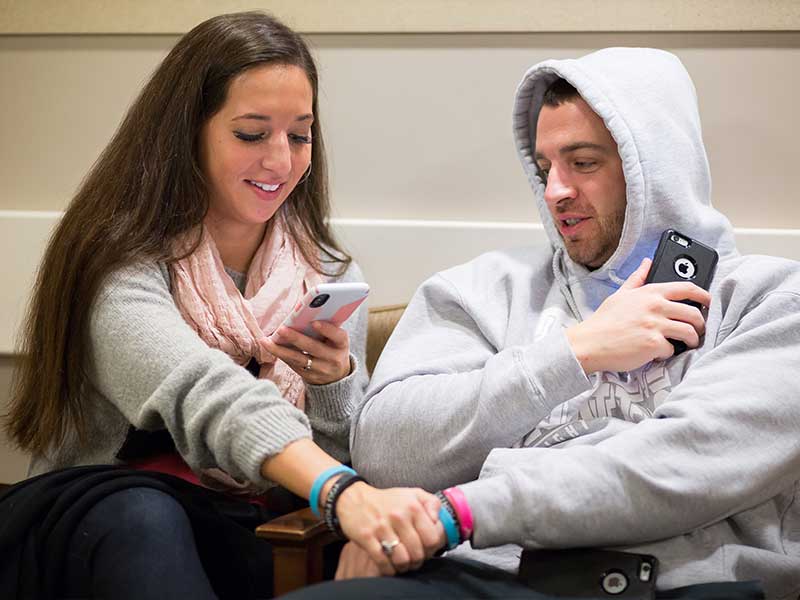
She and hundreds of Sands’ fans wear their #TEAMSANDS black rubber armband all the time. “If I’m in an evening gown, it doesn’t matter. It’s an everyday staple for me until he’s cancer-free.”
Said Hamilton: “He’s done well. He’s just put his head down and done what he’s been asked to do. He’s parlayed his story into the news. He’s devoted to his work. Mike’s a trooper.”
Sands owns his cancer, not the other way around. He shared his story in “Diagnosed Young,” a multi-episode Fox 40 special report that aired in November 2017.
“It’s a blessing I’ll never know why it happened. There’s nothing I could have done to prevent it. I didn’t dip and get mouth cancer,” he said.
“I’m glad I’ve never had the ‘Why me?’ part of it, and those mental gymnastics. If it had to happen to someone I know, I’m glad it’s me. I can handle it.”


